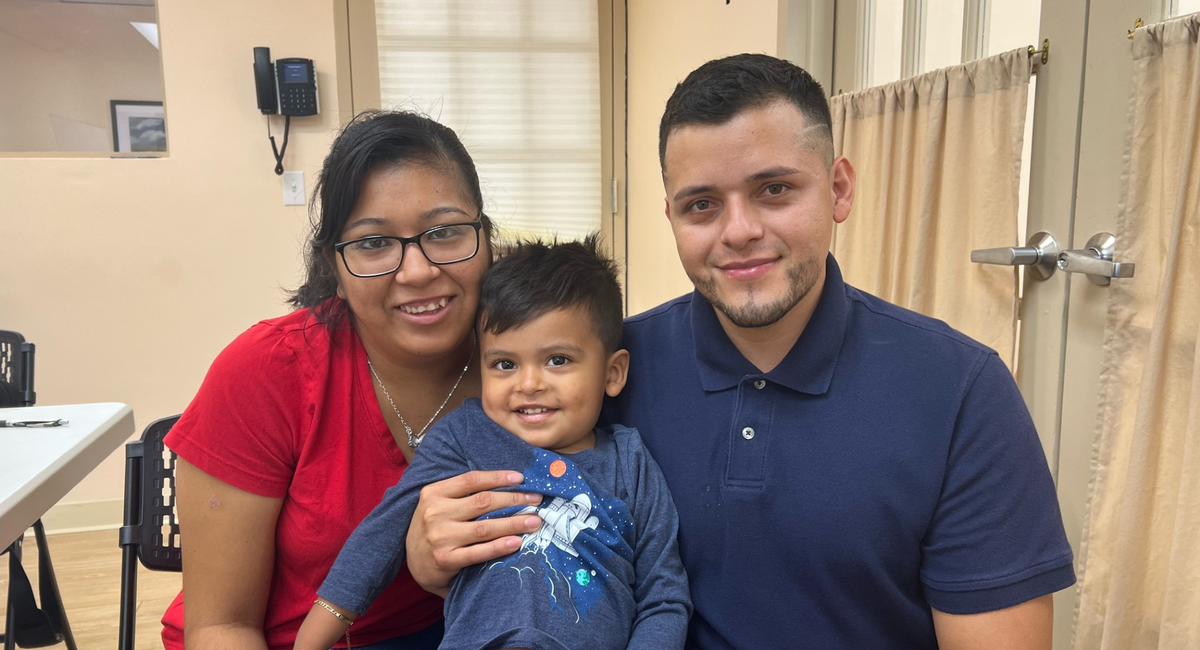Tens of thousands of New Yorkers who are married to U.S. citizens will be spared deportation after an executive action by the Biden administration went into effect this week.
The measure, known as “Keeping Families Together,” began on Monday and could potentially affect 500,000 people nationwide. The New York Immigration Coalition estimates that figure could include about 20,000 people in New York City, although experts said applicants would likely face hurdles.
“This is going to change my family’s life,” said Kelsa Figueroa, an undocumented Honduran immigrant who lives in the Bronx with her husband and two children. She said she had lived in fear of deportation since she arrived in the United States in 2014.
The Biden administration announced the measure in June.
The action drew criticism from some Republicans, including Oklahoma Sen. James Lankford, a member of the Senate Committee on Homeland Security.
“Biden’s border is still in crisis and his latest idea is amnesty,” Lankford said in a post on X. “This will invite more chaos.”
According to the Department of Homeland Security, the initiative allows applicants to make use of a process known as “parole in place,” which allows certain undocumented immigrants to remain in the United States while they apply for legal status, according to Marlene Galaz, the New York Immigration Coalition’s director of immigrant rights policy.
“Before, people would have to leave the country in order to process their status and apply for a green card without really the certainty of them being able to come back,” said Galaz.
“This is really big,” she said.
Candidates are required to have lived in the United States for at least 10 years and to have been married to a U.S. citizen prior to June 17, 2024. On average, DHS said eligible candidates have lived in the U.S. for 23 years. The agency also said as many as 50,000 stepchildren of U.S. citizens would be eligible to apply.
However, Stephen Yale-Loehr, a professor of immigration law at Cornell University, predicted that “fewer people will get approved than originally thought.”
“People may be hesitant to provide information to the government in case they are denied and then put into deportation proceedings,” said Yale-Loehr, who co-authored a letter signed by more than 100 law professors arguing that the Biden action was constitutional. He added that others would be disqualified if they have criminal records, including felonies and certain misdemeanors.
Additionally, Galaz noted that the federal program is “discretionary.”
“You can be eligible and you can meet all of the criteria and still be denied for whatever reason,” she said. “So we’re trying to really let people know that.”
For Figueroa, 34, the possibility that she’ll be legalized comes as an enormous relief. In an interview, she said she became “really emotional” when she first heard of the Biden administration’s initiative.
She said she had first met her husband, a U.S. citizen originally from the Dominican Republic, through a mutual friend in Honduras when he vacationed there. At the time, she was studying to become a primary school teacher.
She said she traveled to the U.S. “for a family emergency,” and reconnected with her future husband. She remained in the country and they married in 2015. She currently works as a dentist’s assistant and has launched her own business cleaning homes and offices.
She and her husband have one daughter, in addition to another daughter from her previous marriage. This means that Figueroa and one of her daughters are not U.S. citizens, while her husband and other daughter are, which prompted a long-standing fear that her family could be separated.
“I’m happy to see this coming to fruition,” she said of the new measure, “because it’s something that many families like myself have been dreaming about for so long.”
Similarly, Jhonny, a 30-year-old Salvadoran immigrant who lives in Rockland County, said he was “very happy” to hear that he was likely eligible.
“I don’t wish to have to return to my country and leave my family here,” said Jhonny, a chef’s assistant who asked to not reveal his last name due to his immigration status. He spoke in Spanish over Zoom through an interpreter at the offices of Neighbors Link Community Law Practice in Ossining, an organization that provides him with legal representation.
His wife Lorena and their 2-year-old son Matthew sat nearby.
“It’s always been a concern of mine that for some sort of reason, ICE could arrest him, detain him, or that he could be deported,” said Lorena, referring to Immigration and Customs Enforcement. Although a U.S. citizen, she asked to not reveal her last name out of consideration for her husband’s safety.
As she spoke, Matthew entertained himself with a phone.
“Our son constantly asks for his father and loves to be around him,” said Lorena, “so it’s very nice to be able to keep the family together.”
